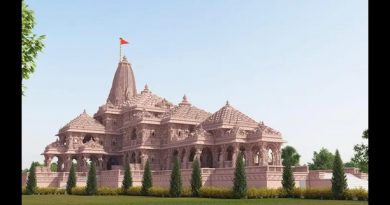Lecture series on Gandhi and Ambedkar in SGT University
SGT Times Reporter
Gurugram, December 21
Prof. N. S. Tung, Pro-Vice-Chancellor, SGT University, inaugurated a lecture series on Mahatma Gandhi and Baba Saheb Dr. B. R. Ambedkar on Monday.
The lecture series was organized by the Centre for Languages and Communication (CLC) in association with the Faculty of Mass Communication and Media Technology (FMMT).
Prof. Sarju Devi, Head, Centre for Languages and Communication, welcomed the dignitaries and participants, eulogized the efforts of the university officials for making the lecture series a great success. Prof. Sam Nesamony, faculty member, CLC, introduced the lecture series and explicated the ‘concept note’ on which the lectures are to be conducted.
Prof Tung articulated on the importance and relevance of both quintessential leaders India produced, who later became pillars on the growth and development of India. Furthermore, he explained the tremendous and commendable services carried out by both the leaders in making Modern India.
Prof. Sushil Manav, Dean, Faculty of Mass Media and Media Technology, spoke on the relevance and importance of the ideas of both Gandhi and Ambedkar at this crucial and seminal times.
Dr. Vineet Kumar and Mr. Tushar, faculty members introduced the speakers. Prof. James R. Daniel, Professor, M.S. University, Tirunelveli, who delivered the first lecture, explored the importance of both Mahatma Gandhi and Babasaheb Ambedkar, and pointed out that India produced two great sons, and both of them developed their vision of making a great India.
The second speaker, Dr. Christhu Doss, Professor, Jesus & Mary College, University of Delhi, in his lecture titled, Experiential Epistemology: Ambedkar, Gandhi, and the Making of Modern India, expounded that, both the leaders developed experiential epistemologies through their social, cultural, religious, economic and political practices and day-to-day social interactions. Both of them were among the crucial leaders who were well-equipped with legal knowledge and arbitration tactics for their respective causes. They could produce a vast amount of historic and intellectually in-depth writings that are actually based essentially on their belief, practices, customs, and day-to-day encounters. They evolved dispassionate modalities to fight all forms of oppression with a view to unshackle people. A large number of teachers, research scholars, and students participated. The inaugural lecture ended with a vote of thanks proposed by Dr. Anupam Kumar, Associate professor, CLC.

